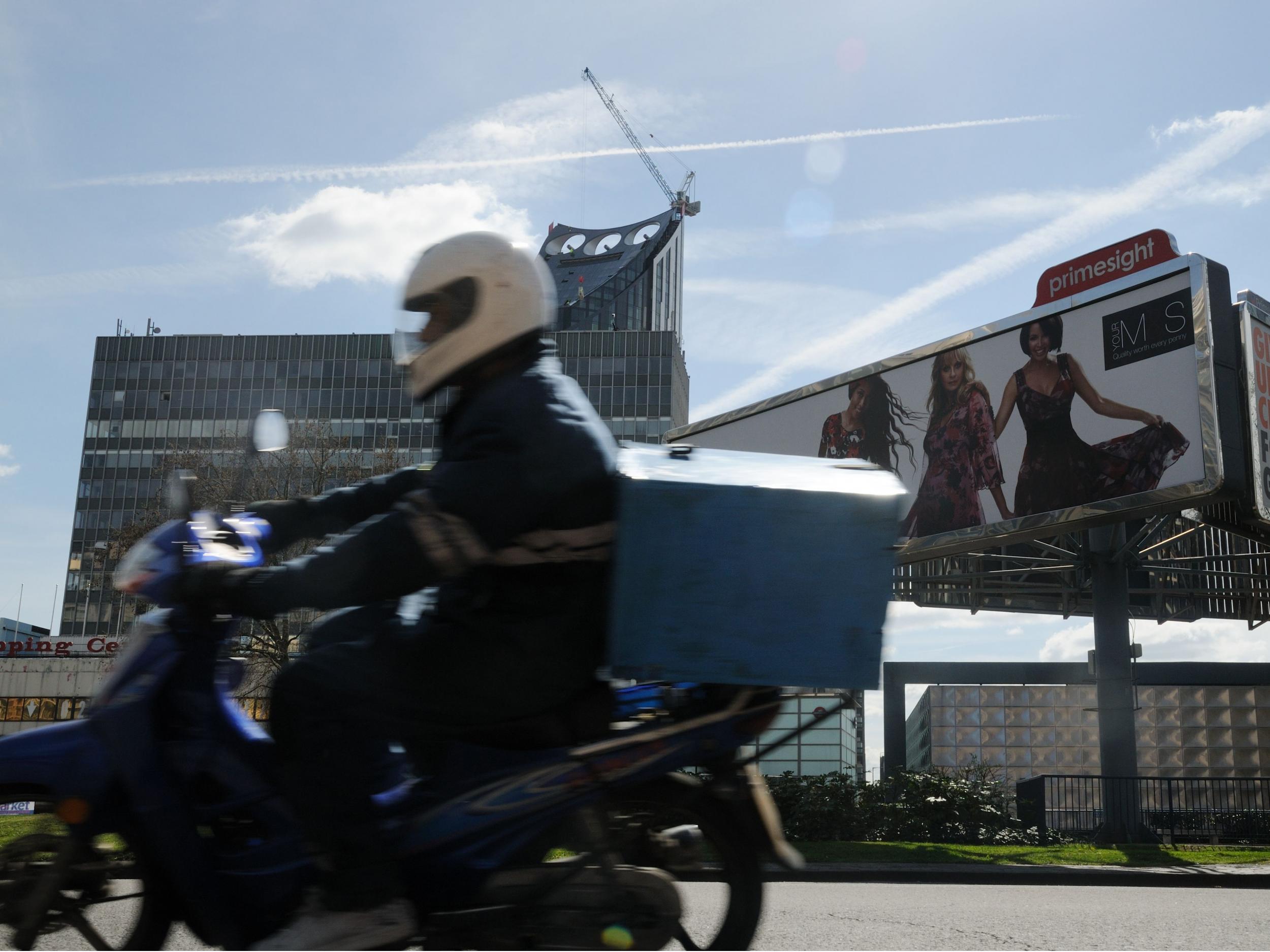Moped crime: 'Overzealous' discipline for police who chase scooter thieves blamed for rise in robberies
'I don’t care how many of them fall off and kill themselves because they’re not wearing a crash helmet. We cannot allow them to behave like this in the capital city,' says former senior officer

A former senior Metropolitan Police officer has called for stronger measures to be used against criminals who operate on mopeds, even if it results in their deaths.
David Videcette, who investigated organised crime with Scotland Yard, said the "overzealous" enforcement of current guidelines were impeding police from tackling the moped crime wave which has gripped London.
He also admitted officers used to “bend the rules” to hide the fact they deliberately knocked drivers off their bikes.
Referring to a daylight knife attack using a moped he witnessed on Friday, Mr Videcette told The Independent: “I don’t care how many of them fall off and kill themselves because they’re not wearing a crash helmet. We cannot allow them to behave like this in the capital city.”
He added: “No police officer wants anyone to die. But you should stop when the police indicate you do so. If you continue on, after that point, whatever happens is down to you, not the police.”
“If the choice is these [pursued] criminals falling off and killing themselves, that the choice we’re going to have to make.”
Public concern has been mounting over moped crime in London, which is often associated with violent offences, including acid attacks and robberies.
Last Thursday, five people were burned with corrosive substances and two victims had their mopeds stolen. A murder in Greenwich on Saturday was also linked to moped criminals.
“They are willing to disfigure people with acid to get their hands on these bikes, that’s how valuable they have become,” Mr Videcette, adding that the vehicles are used by organised criminals in robberies in which they can make up to £1,000 a day.
Mr Videcette said the reluctance of officers to pursue moped thieves – driven by the harsh treatment of those who do so by the Independent Police Complaints Commission (IPCC) – had driven up the value of scooters as a “criminal commodity,” allowing drivers to become bolder and more violent.
But the IPCC rejected accusations of overzealousness, saying guidelines for pursuits were set by the police themselves. ‘Tactical contacts’ – in which rogue riders are knocked off their scooters at lower speeds – are allowed with authorisation.
Mr Videcette argued the spate of moped crime was a culmination of criminality which had increased since the death of Henry Hicks, 18, who died after losing control of his scooter during a 2014 chase in north London. Four officers face a misconduct hearing in October.
The death of Mr Hicks – who was in possession of drugs and cash – was described by Mr Videcette as a “watershed moment” in the way police officers who pursued suspects on vehicles were treated.
“Back when the police ran their own internal investigations, when we got to decide how the law should be applied … we would bring moped pursuits to a very abrupt halt,” Mr Videcette said.
“We’d get behind the moped and knock them off [at slow speeds]… We’d give them a little nudge and they’d fall off. It was really easy. And we would write our evidence to say that they’d slowed down and we’d hit them. That was the way it was and it worked… Everybody knew.”
But officers say the action has come under intense scrutiny since the death of Mr Hicks, and that criminal riders have taken advantage of this, including by removing their helmets when followed by police -- knowing the chase will be ended.
Mr Videcette said officers had been left in an “incredibly stupid” situation where they feared for their jobs if giving chase to suspects.
“When you allow them to act with impunity, you find them riding at greater and greater speeds,” he said. “They believe the more recklessly they drive, the more likely it is the pursuit will be called off, and that’s a very dangerous situation.”
Mr Videcette described the IPCC as “very overzealous in wanting to prosecute police officers,” and the organisation “lambasted the police”.
He said officers were being accused by the IPCC of driving dangerously and that untrained officers antagonised criminals into driving more recklessly.
“They’ve taken confidence away from police officers who believed they were doing the right thing in pursuing vehicles,” he added.
But an IPCC spokesperson said: "All officers are treated as witnesses until there is any evidence that would suggest either misconduct or criminality so any suggestion that the IPCC is overzealous in its approach to investigations is simply wrong."
Mr Videcette called for a new framework for police drivers to work under, including for more officers to be trained in tactical contacts and to be protected from prosecution when carrying out their role “correctly”.
The IPCC added: "When the IPCC conducts a mandatory investigation into a death or serious injury to a member of the public following a police pursuit we examine if the actions of the police are in line with the policies and procedures set either nationally by the NPCC and College of Policing or locally by the police force.”
Subscribe to Independent Premium to bookmark this article
Want to bookmark your favourite articles and stories to read or reference later? Start your Independent Premium subscription today.

Join our commenting forum
Join thought-provoking conversations, follow other Independent readers and see their replies